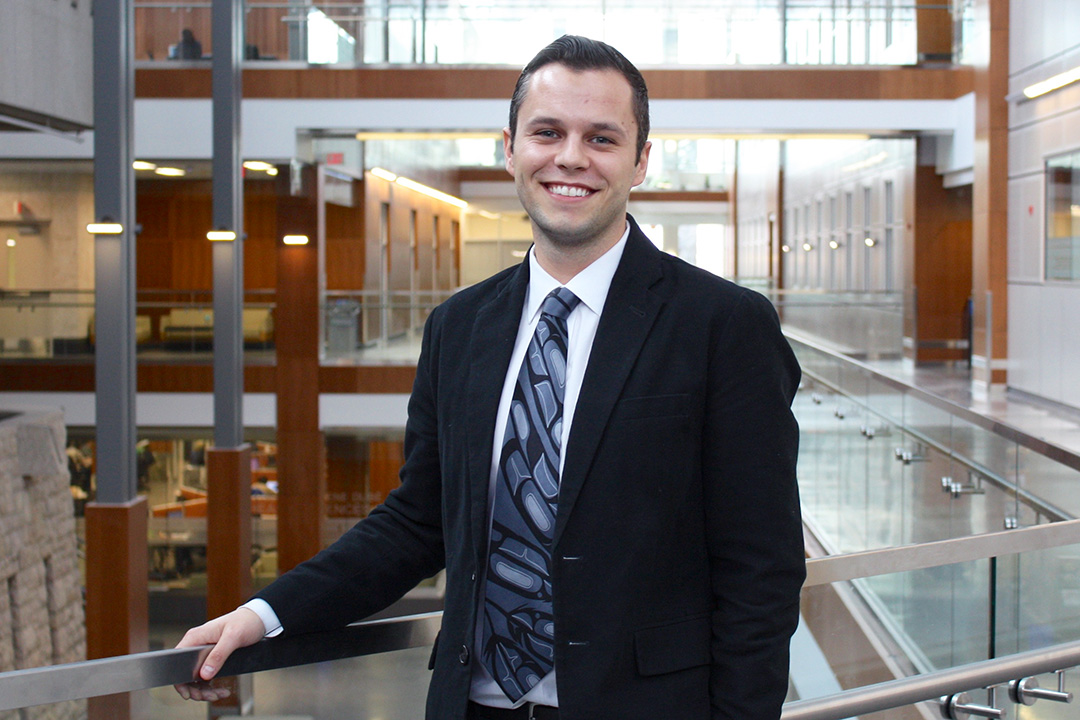
Indigenizing pharmacy education
An article by Dr. Jaris Swidrovich (PharmD) recently published in the journal Currents in Pharmacy Teaching and Learning assessed the current state of research and the number of peer-reviewed publications on Indigenizing pharmacy education.
By Kieran KobitzThe College of Pharmacy and Nutrition professor at the University of Saskatchewan (USask) conducted a literature review with the intention of collating any and all publications on Indigenous engagement in pharmacy education, but found that there were no scholarly, peer-reviewed publications specifically on Indigenous education in pharmacy.
Swidrovich then broadened his search to the other health sciences and discovered some education literature in areas such as nursing and speech pathology.
The research to Indigenize these programs was minimal, but did provide some guidance which could help inform recommendations for pharmacy education.
“It was unfortunate, but not surprising, to verify that minimal research and publishing has been done on Indigenizing pharmacy education and the health sciences education in general,” said Swidrovich.
Looking at the available material, Swidrovich developed a number of recommendations for Indigenizing pharmacy curriculum.
With Indigenization a priority at both the university and college levels, Swidrovich has been working to share his findings and recommendations with colleagues and to implement new initiatives in the classroom.
In USask’s PharmD program, he takes the lead on four hours of Indigenous content during the annual orientation week, while also teaching on Indigenous topics throughout each year of the program.
There is also strong interest at all 10 pharmacy schools in Canada to develop Indigenous elements in pharmacy education, which has led Swidrovich to advocate for and share his findings through the Association of Faculties of Pharmacy of Canada (AFPC).
Swidrovich created the Truth and Reconciliation Special Interest Group (SIG) through AFPC, which has representation from every pharmacy school in the country. SIG members collaborate through an online portal and teleconferences to share resources, discuss what they’re working on and provide feedback to each other on how to implement new initiatives.
The discussions in the SIG go beyond pharmacy education and include how non-Indigenous people can be allies and how to create procedures to help support Indigenization across all aspects of a post-secondary institution.
Additionally, a symposium was held after the annual AFPC Conference last June, which was attended by representatives from each pharmacy school and included topics on the various areas required to Indigenize pharmacy education.
Swidrovich spoke about evidence-based medicine through an Indigenous lens and the college’s Dr. Yvonne Shevchuk (PharmD) spoke about her experience with the Buffalo Circle, which recognizes non-Indigenous senior leadership, staff and faculty as outstanding allies, and nominates them to be part of the circle by Indigenous staff and faculty.
Swidrovich plans to continue with his research and advocacy at the university and collaborating with other pharmacy schools.
One of the next steps at the university will be to hold a student recruitment event for the college, which will incorporate Indigenous culture and methods to engage with potential applicants to the pharmacy program.
